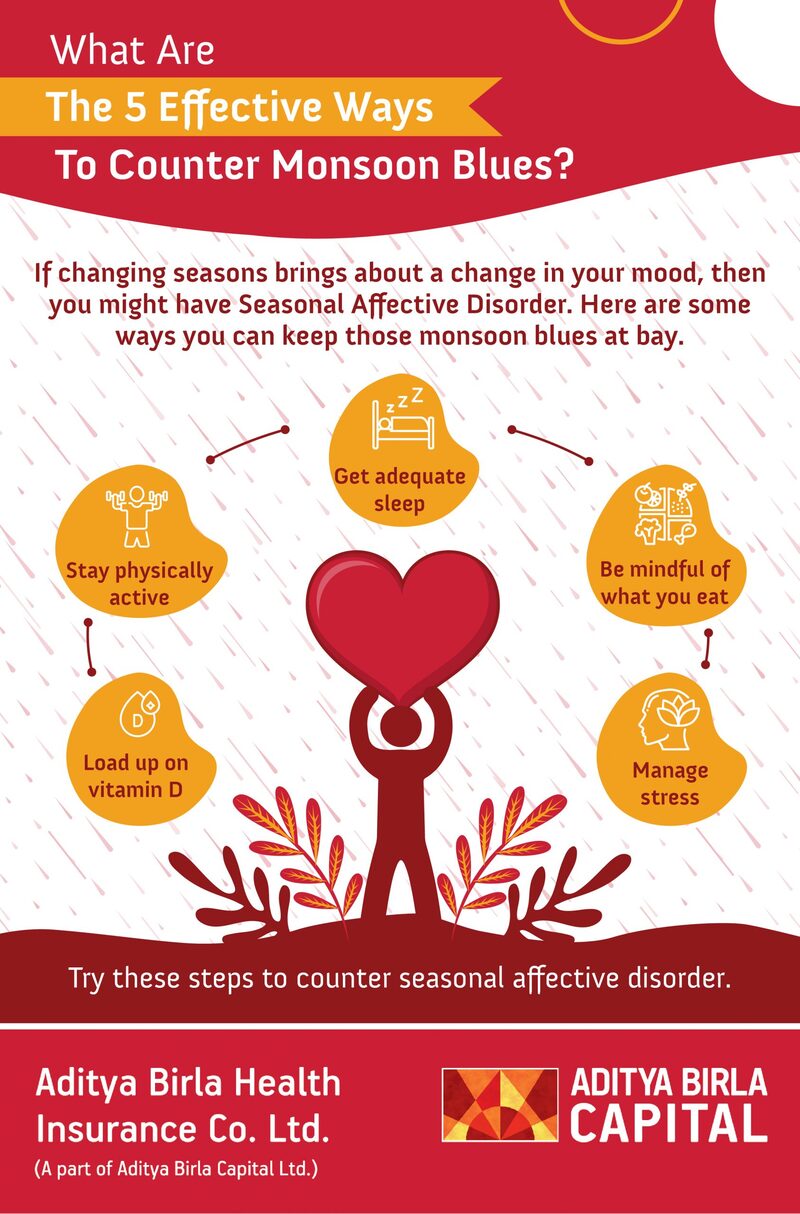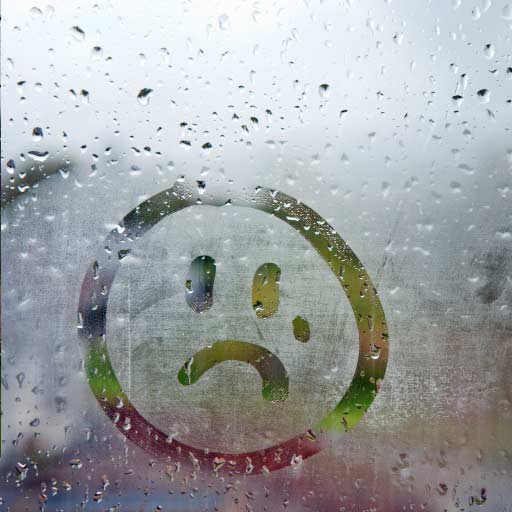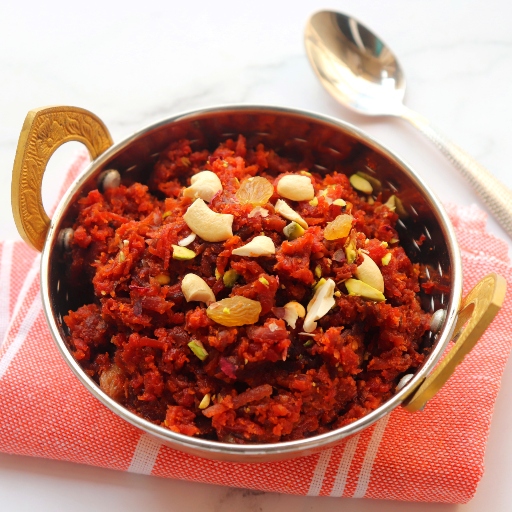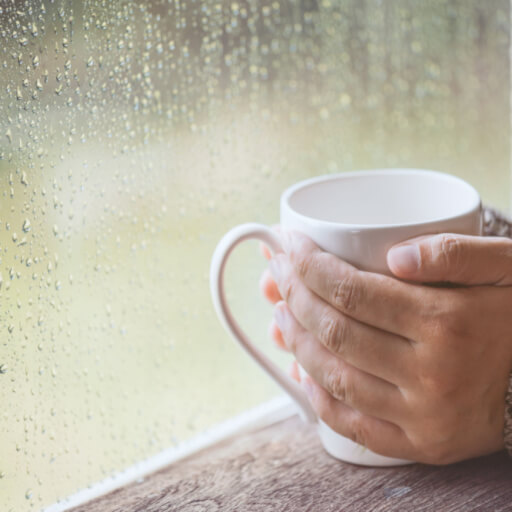
Changing seasons can have an impact on your moods and mental health. This phenomenon is commonly known as Seasonal Affective Disorder (SAD). While some people rejoice in the aspect of monsoons and getting rid of hot sultry weather, some might also feel lethargic. SAD syndrome manifests when the sun goes into hiding, making people more prone to emotional distress. The cloudy and dark weather during the monsoon season can disturb the body’s circadian rhythm (physical, mental, and behavioral changes that follow a 24-hour cycle). In the absence of enough light, the pineal gland releases melatonin (which influences the sleep-wake cycle), leading to drowsiness.
Individuals with low levels of melatonin and serotonin do not get enough sunlight. As a result, they are vulnerable to feelings, such as cravings for carbohydrates, that are unhealthy and can lead to weight gain. Loss of appetite, resultant weight loss, and sleep disturbance are other symptoms of SAD. When light enters your eyes, it shuts off the production of melatonin. SAD is also known to suppress the neurotransmitter serotonin or the feel-good hormone. Low serotonin levels can result in less energy, fatigue, irritability, and social withdrawal.
Here are some ways to cope with seasonal affective disorder.
- The best source of vitamin D is sunlight exposure, as it can regulate mood fluctuations and ward off depression.
- Staying physically active can keep you healthy. It can make you feel productive, release endorphins, and lifts your spirits. This can range from exercising at home to doing household chores, anything that gets you moving.
- It is common for people with SAD to have food cravings, especially in the monsoon season. Be mindful of what you eat. Avoid fried, sugary, salty, and junk foods, as these can carry a host of diseases.
- People already suffering from stress and anxiety can reduce the impact of SAD by practicing mindfulness meditation, yoga, and pranayama.
- Get adequate sleep of 7-8 hours. Reduce your screen time so you can sleep and wake up on time. Getting enough sleep can have an overall positive impact on your lifestyle, including improved health, improved concentration levels and more productivity.
Those suffering from monsoon depression should endure the rains while remembering that this season is short-lived. For more information on #HealthyMonsoonWithActivLiving, stay active in the Activ Living Community, where you can find more details on fitness and lifestyle.





 1800-270-7000
1800-270-7000











